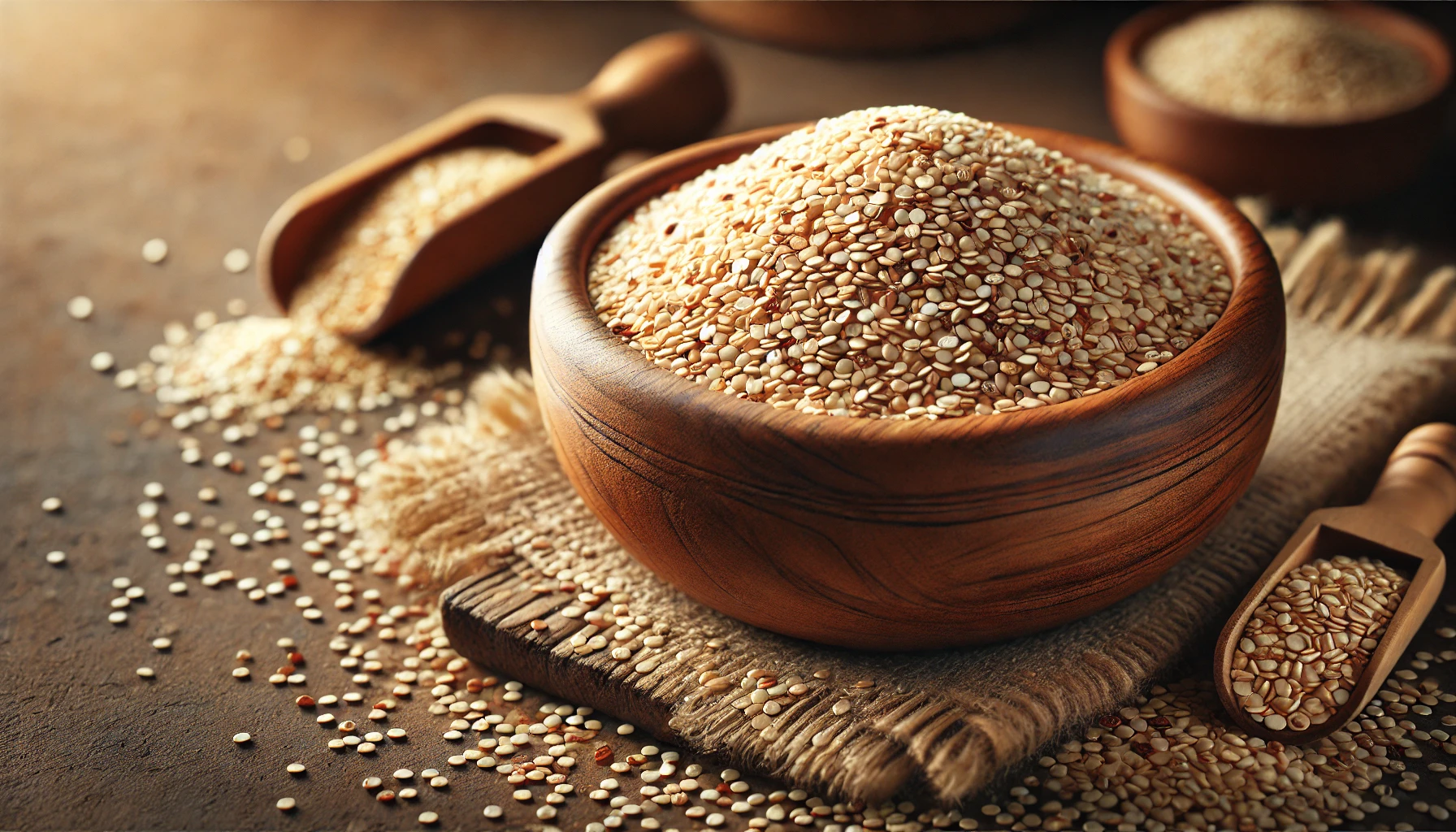Health Benefits of Quinoa and Quinoa Flakes
This post was written with Consensus AI Academic Search Engine – please read our Disclaimer at the end of this article. Quinoa and quinoa flakes are highly nutritious and offer numerous health benefits, including improved antioxidant capacity, cardiovascular health, glucose and lipid metabolism, gut health, and liver health. Their preparation is simple, making them a versatile addition to a healthy diet.
Nutritional Value
Quinoa (Chenopodium quinoa Willd.) is a pseudo-cereal that has gained popularity due to its high nutritional value. It is a rich source of proteins, carbohydrates, fibers, tocopherols (Vitamin E), unsaturated fatty acids, and a wide range of polyphenols3. Quinoa is also gluten-free, making it suitable for individuals with gluten intolerance or celiac disease3.
Health Benefits
Antioxidant Properties
Different preparation methods of quinoa, such as germination, soaking, and fermentation, significantly increase its total antioxidant capacity, flavonoids, and phenols while decreasing anti-nutritional factors1. These antioxidants help in reducing oxidative stress and inflammation, which are linked to various chronic diseases.
Cardiovascular Health
Quinoa consumption has been shown to lower serum triglycerides and reduce the prevalence of metabolic syndrome in overweight and obese individuals2. Additionally, quinoa biscuits have been found to decrease total and LDL cholesterol concentrations, body weight, and BMI, contributing to a lowered risk of cardiovascular diseases in older adults6.
Glucose and Lipid Metabolism
In individuals with impaired glucose tolerance, a quinoa-based diet significantly reduces postprandial blood glucose, glycosylated hemoglobin, insulin resistance, and improves lipid metabolism. This helps in delaying the progression of diabetes4.
Gut Health
Quinoa soluble fiber and quercetin alter the composition of the gut microbiome, improving intestinal morphology and increasing the concentration of probiotic bacteria like L. plantarum3. This can enhance digestive health and overall well-being.
Liver Health
Quinoa intake has been shown to ameliorate hepatic steatosis, oxidative stress, and inflammation in nonalcoholic fatty liver disease (NAFLD) rats. It also regulates the gut microbiota, which plays a crucial role in liver health7.
Nutrition Facts
Quinoa is packed with essential nutrients:
- Proteins: High-quality protein containing all nine essential amino acids.
- Carbohydrates: Complex carbohydrates that provide sustained energy.
- Fibers: Soluble and insoluble fibers that aid in digestion and improve gut health.
- Vitamins: Rich in Vitamin E (tocopherols) and B-vitamins.
- Minerals: Contains iron, magnesium, phosphorus, and zinc.
- Polyphenols: Includes quercetin, which has anti-inflammatory and antioxidant properties3.
How to Prepare Quinoa and Quinoa Flakes
Basic Quinoa Preparation
- Rinse: Rinse quinoa under cold water to remove saponins, which can cause a bitter taste5.
- Cook: Combine 1 part quinoa with 2 parts water or broth. Bring to a boil, then reduce to a simmer. Cover and cook for 15-20 minutes until the water is absorbed.
- Fluff: Remove from heat and let it sit for 5 minutes. Fluff with a fork before serving.
Quinoa Flakes Preparation
- Rinse: Similar to whole quinoa, rinse quinoa flakes if they have not been pre-rinsed.
- Cook: Combine 1 part quinoa flakes with 2 parts water or milk. Bring to a boil, then reduce to a simmer. Cook for 2-3 minutes, stirring occasionally.
- Serve: Quinoa flakes can be served as a hot cereal, similar to oatmeal, and can be topped with fruits, nuts, or sweeteners.
Disclaimer
The content presented in this blog is generated by Consensus, an AI-powered academic search engine, and is based on publicly available scientific literature. While every effort is made to provide accurate, up-to-date, and well-researched information, the content is intended for informational and educational purposes only. It does not constitute medical advice, diagnosis, or treatment. Always consult a qualified healthcare professional before making any decisions regarding medical conditions, treatments, or medications. The AI system’s analysis may not cover all perspectives, emerging research, or individual cases, and it is not a substitute for professional expertise. Neither the blog publisher nor the developers of the AI-powered search engine are responsible for any actions taken based on the information provided in this content. Use of this information is at your own risk. Citations to the original scientific studies are included for reference, but these studies should be reviewed in full and interpreted with the guidance of a healthcare or research professional.
If you are experiencing a medical emergency, please seek immediate attention from a healthcare provider.
